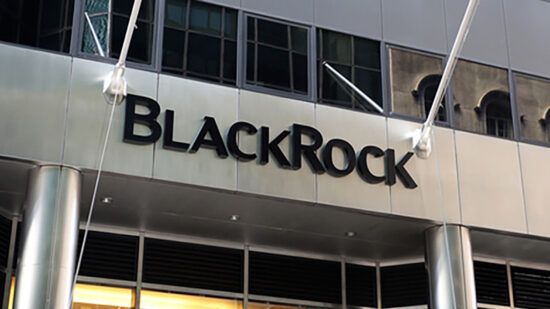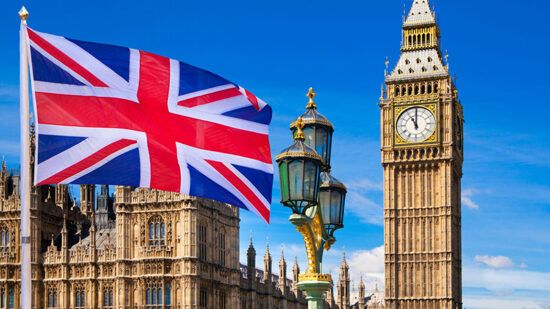A group of 24 investors worth $1.24trn in assets under management (AUM) – including NEST, Rathbones Group and the Church of England Pensions Board – have called on Barclays to clean up their act on fracking and close the loopholes in their energy policy that still allows them to provide significant funding for the controversial fuel.
Specifically, the group has asked Barclays to commit to explicit restrictions on providing finance for all companies that are exclusively focused on fossil fuel extraction and make its fracking policy global to cover North America, where most of its fracking clients are based. Barclays has already committed to restricting financing for fracking in the UK and Europe. However, fracking is mostly banned or suspended in these regions.
Additionally, a ShareAction analysis of Barclays’ Energy Policy in April assessed the impact of the bank’s new restrictions and found they were unlikely to meaningfully address the bank’s role as Europe’s largest financier of fracking. It found the majority of Barclays’ financing to pureplay companies went to companies specialising in fracking.
ShareAction will hand Barclays a petition on behalf of over 3,500 members of the public, reiterating the demands to end fracking finance, as well sharing testimonials from residents from the town of New Freeport, Pennsylvania, who are living with the environmental and health effects of fracking.
Kelly Shields, campaign manager at ShareAction, said: “Investors, the public, and people whose lives have been impacted by fracking are making it clear to Barclays they must stop funding this damaging and dangerous fuel.
“It is now up to Barclays to close the loopholes in its energy policy, moving away from financing companies that exclusively work on extracting fossil fuels and especially fracking companies, which are putting people and the planet at risk.”
“Despite progress on its oil and gas policy, Barclays continues to leave the door open to pour millions into polluting fossil fuel finance, and particularly worryingly, fracking.”
A Barclays spokesperson said: “We thank ShareAction for their ongoing engagement on our climate strategy and for recognising the progress we have made in ‘setting a sector-leading commitment’ in our updated oil and gas policies.
“We have a target to deliver $1trn of sustainable and transition finance by 2030 and last year mobilised $67.8bn. We recognise the importance of meeting current energy needs, while financing the scaling of the clean energy system of tomorrow to ensure energy is secure, affordable and reliable. The International Energy Agency’s Net Zero Emissions 2050 Scenario recognises that reserves with shorter lead times – such as shale oil and gas – remain an important part of near-term energy supply.”
Additionally, Barclays pointed to the fact that ShareAction submitted a resolution in December 2023 and subsequently withdrew the resolution in February 2024 in recognition of Barclays’ “ongoing work to progress its climate strategy”. This followed engagement with Barclays’ senior leadership on the bank’s climate policies.
Barclays protest
Protest groups including Fossil Free London, XR Glasgow and Tipping Point UK, as well as the Palestine Solidarity Campaign, also descended on Barclays’ AGM, calling for an end to its continued funding of fossil fuels, as well as its role in funding arms companies.
According to the protestors, Barclays is the number one European bank financing fossil fuels since the Paris Agreement, pouring over $190bn into fossil fuels between 2016 and 2022.
Additionally, they say that Barclays now holds over £2bn in shares of companies whose weapons, components and military technology have been used in violence against Palestinians by Israel, and that they also provide over £6.1bn in loans and underwriting to these arms and military technology companies.
Joanna Warrington, a spokeswoman for Fossil Free London, said: “As lifeless children are carried in their fathers’ arms across Gaza, this UK bank is investing millions in the bombs that killed them.
“Barclays’ oily money is being ploughed into bombs and big oil. Meanwhile the world’s heart breaks for the suffering in Palestine, and we all fear for a worse future as flooding and famine becomes the new normal. Barclays must stop funding the arms trade, and stop funding dirty and dangerous companies like Shell.”
Barclays responded to a PA Future request for comment on the protests by referring to an AGM 2024 FAQ on their website, which states that, while “we recognise the profound human suffering caused by this conflict”, protests about Barclays’ relationship with arms manufacturers are based on false assumptions.
“We have been asked why we invest in nine defence companies supplying Israel, but this mistakes what we do,” the statement reads.
“We trade in shares of listed companies in response to client instruction or demand and that may result in us holding shares. We are not making investments for Barclays and Barclays is not a ‘shareholder’ or ‘investor’ in that sense in relation to these companies.”
The statement goes on to say that the defence sector is “heavily regulated” and that overall it is “an important contributor to our security”.
Shareholder action at HSBC
Meanwhile, in further evidence of shareholder increasing climate pressure on banks, last week shareholders at the HSBC AGM asked the bank to explicitly set out how they intend to use the money they have dedicated to sustainable finance and demanded they set a funding target for renewable energy.
The group included the Ethos Foundation, Epworth Investment Management, Royal London Asset Management, Axiom Alternative Investments, La Francaise Asset Management, Jesuits in Britain and Folksam pension fund.
In November, ShareAction published an analysis of green finance and reporting from Europe’s largest banks, including HSBC, and found that a lack of transparency around sustainable finance claims left banks open to greenwashing accusations.
Jeanne Martin, head of the banking programme at ShareAction, said: “HSBC has set a target of spending up to $1trn on sustainable finance by 2030, but investors don’t have enough information about how exactly this will be spent to know if the bank is really on the path to net zero and contributing its fair share of financing to address climate finance gaps.
“The target as it currently stands is too broad and vague. It gives the impression the bank is scaling up its efforts on green finance without demonstrating the difference it will make, or whether it is financing the green activities that are most needed. This is why we are calling on the bank to make it clear how its green finance target will be spent across environmental and social themes, with a specific target for renewable energy that demonstrates how it is shifting its financing to support the energy transition.”
Investor coalition pressures Amazon
Elsewhere, shareholders of Amazon.com have urged the company to assess whether it has lived up to its commitments to respect workers’ rights to freedom of association and collective bargaining.
A group of more than 20 global investors led by SHARE – the Shareholder Association for Research and Education – filed a shareholder proposal urging Amazon’s board of directors to assess how the company’s actions align with its policies to respect international human rights law.
Amazon’s upcoming AGM on 22 May comes amid ongoing unionisation efforts at the company, including recent applications in the US, UK and Canada, and media reports alleging intimidation, retaliation and surveillance.
Sarah Couturier-Tanoh, director of SHARE said that effective and transparent due diligence is needed to reassure shareholders when repeated allegations of misconduct arise.
“Beyond the ethical imperative to respect human rights, any failure to align workforce practices with internationally recognised human rights norms represents a threat to shareholder long-term value,” continued Couturier-Tanoh.
“That’s why in the past couple of years we have seen global investors taking stances in favour of better labour relations in an effort to mitigate those risks in their investment portfolio. In the past six months, several companies answered the call, including Starbucks and Apple. We are still waiting for Amazon to follow suit and, frankly, to do even better.”








